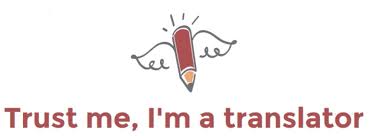
Translation agencies play a fundamental role in providing services that emphasize accuracy, consistency, and cultural adaptation across various fields. From document translation to software localization and interpretation for international events, these agencies offer comprehensive solutions to meet the evolving needs of a global market. In this analysis, we will explore the services they provide and how they facilitate global communication.
Translation and Localization Services
Translation agencies handle general translations, including business correspondence, website content, and informational materials, focusing on basic communication needs. They also specialize in specific sectors such as medical, legal, financial, technical, and industrial translation. Sworn or certified translation is another essential service, ensuring official documents like academic certificates, identification documents, and legal contracts are accurately translated and legally recognized.
In addition to translation, agencies offer localization services for software and websites, ensuring that user interfaces, technical documentation, and digital content resonate with local audiences. This process includes adapting graphic elements, cultural nuances, and multilingual SEO to maximize impact in international markets.
Interpretation and Audiovisual Services
Interpretation services are essential for real-time communication in events and meetings. Simultaneous interpretation is ideal for conferences and congresses, allowing participants to receive translations in real time. Consecutive interpretation, on the other hand, is better suited for business meetings and negotiations, where the translator speaks immediately after the speaker.
In the audiovisual sector, agencies provide subtitling and dubbing services for films, series, documentaries, and corporate videos. This adaptation ensures content is accessible and effective for different linguistic audiences.
Digital Services and Consultancy
In the digital era, translation agencies support multilingual marketing efforts across social media, email campaigns, blogs, and digital advertisements. They also specialize in transcribing and translating audio content, such as interviews, podcasts, and recorded meetings, while preserving the original meaning.
Additionally, companies rely on agencies for linguistic consultancy when expanding internationally. These agencies offer strategies for multilingual communication, cultural adaptation, and project management to help businesses effectively engage with foreign markets. Terminology management is another key service, helping organizations maintain consistency in technical documentation through glossaries and translation memories.
Technology in Translation
Technology is the backbone of efficiency in translation agencies. Translation memories allow for the reuse of previously translated segments, ensuring consistency and reducing turnaround times. These systems store frequently used phrases and terminology, making them particularly useful for long-term or recurring projects.
Computer-assisted translation (CAT) tools enhance accuracy by segmenting texts, suggesting past translations, and maintaining a consistent style across different documents. Additionally, the use of terminological databases and specialized glossaries ensures uniform expression in fields such as legal, medical, and financial translation, as well as in technical projects.
Another technological advancement is machine translation with post-editing. While raw machine translation may lack the required level of accuracy, combining it with human revision significantly improves efficiency in large-scale projects, reducing costs and delivery times while maintaining high-quality results.
Urgent Translation Services
Translation agencies understand the need for speed in a world where information moves rapidly. To meet tight deadlines, they offer urgent translation services that ensure fast delivery without compromising quality.
These services are especially useful for last-minute document translations, such as contracts, corporate reports, official communications, and presentations. Thanks to their network of specialized translators and efficient project management, agencies can divide work among multiple professionals, completing projects in record time while maintaining consistency.
Some agencies also operate 24/7, enabling them to provide immediate solutions for urgent projects in different time zones. This is crucial for international businesses that require quick responses in multiple languages.
Conclusion
Translation agencies offer far more than simple text conversion. Their ability to adapt content, provide digital services, and ensure high-quality translations makes them indispensable partners for businesses and individuals looking to communicate effectively in the global marketplace.




